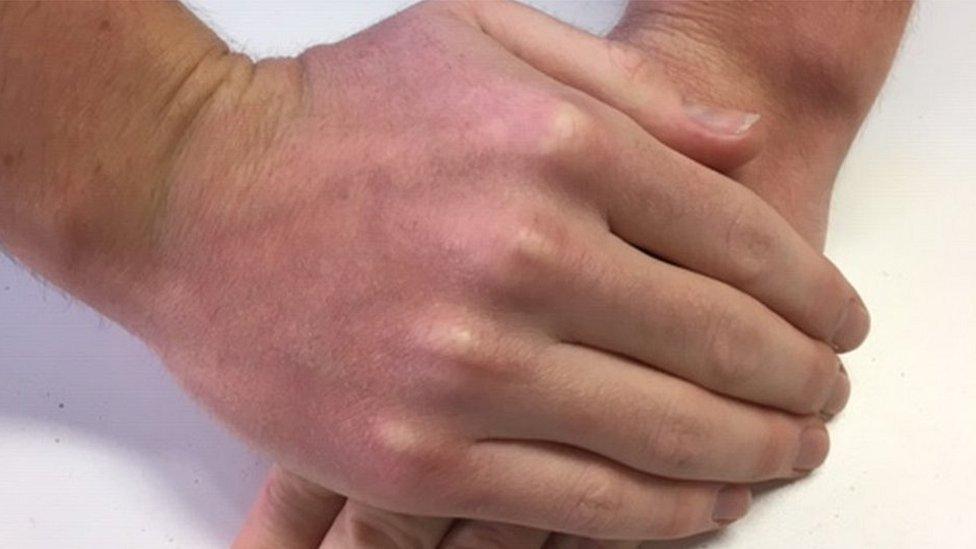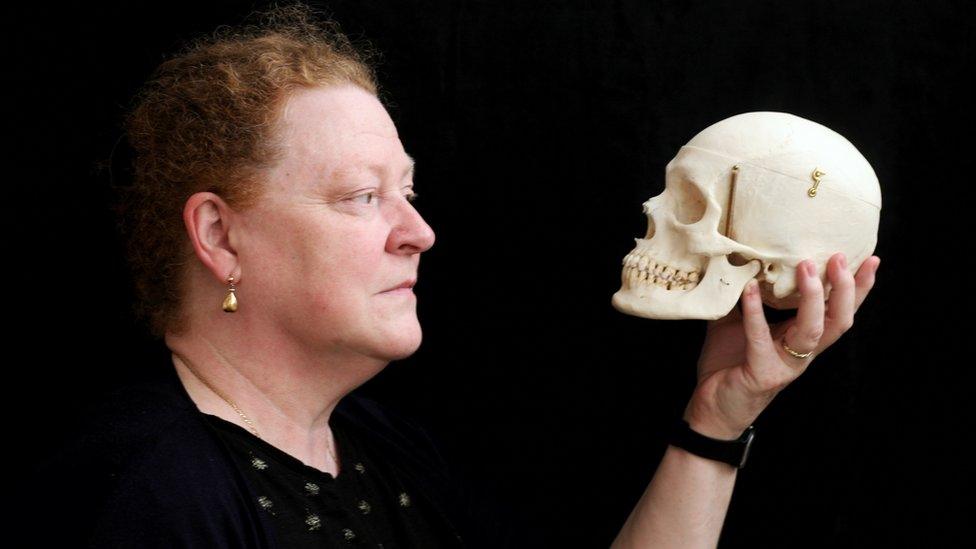Lancaster University's hand database 'could catch paedophiles'
- Published

Prof Black said one day the back of people's hands could be as valuable as fingerprinting in solving crime
Scientists are appealing for people to submit photographs of their hands to help catch online paedophiles.
Researchers in Lancaster and Dundee want 5,000 "citizen scientists" to help create a database of images to train machines to identify child abusers by analysing videos of their hands.
They would analyse unique features such as vein patterns, scars and freckles.
Prof Dame Sue Black, who is leading the project, said one day the database could be as valuable as fingerprinting.
'Train machines'
The forensic anthropologist said child abuse suspects had already been identified in court cases by matching features on the back of their hands with those in images of abuse.
But the process is very slow, requiring close study of shocking images by scientists and police officers.
Prof Black said designing computer algorithms would speed up the process and save officers and scientists from being exposed to the images for long periods of time.

The research could also help with security access, border control and serious and organised crime
Images of child abuse often showed the back of the abuser's hand, she continued.
Interpol and police forces worldwide "have millions and millions of images" of suspects which could use the tool, she added.
"We want to be able to train machines to identify the anatomy of these perpetrators from the photographs."
Prof Black - who won an award for her book on her 30 years of work in forensic science - said researchers were looking for volunteers to take photographs of their own hands using their mobile phones.
"We will strip out all the information that will identify somebody... we just want the images so we can start to train the machines."
The research could also help with security access, border control and serious and organised crime.
The European Research Council has provided £2.2m (€2.5m) funding for the five year study called H-Unique to be carried out in collaboration with the University of Dundee and led by Lancaster University.
- Published30 November 2018

- Published25 June 2018
